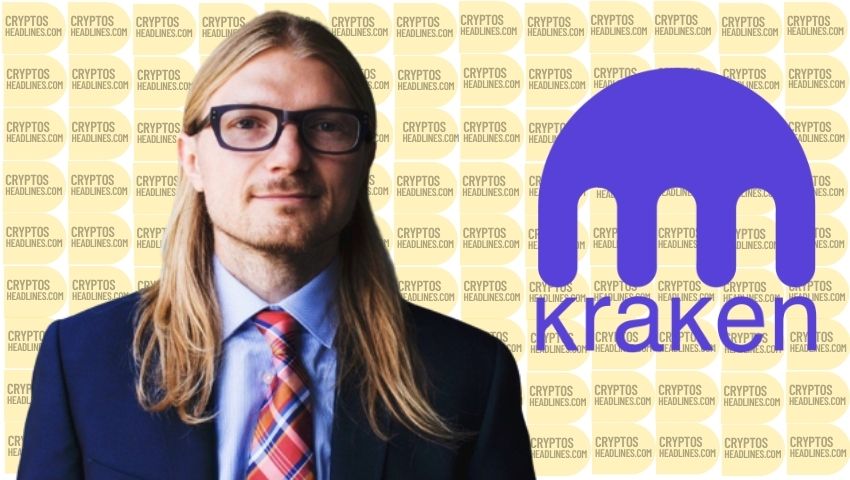Cryptocurrencies have gained significant attention in recent years, with Bitcoin being the most well-known among them. However, beyond Bitcoin, there is a world of altcoins – alternative cryptocurrencies that are gaining popularity and changing communities in various ways.
Altcoins are digital currencies that operate on blockchain technology, just like Bitcoin, but with different features and use cases. In this blog post, we will explore the social impact of altcoins and how they are transforming communities worldwide.
Economic Empowerment
One of the significant social impacts of altcoins is economic empowerment. Traditional financial systems may exclude or limit access to financial services for many individuals and communities, especially in developing countries.
Altcoins offer an alternative financial ecosystem that is open, transparent, and accessible to anyone with an internet connection. Altcoins enable people to send and receive money globally without the need for intermediaries, such as banks, reducing transaction fees and delays.
Altcoins also provide opportunities for individuals and communities to participate in the digital economy. For example, some altcoins offer staking or lending features that allow users to earn passive income by locking up their cryptocurrency as collateral or lending it to others.
This can create economic opportunities for individuals who may not have access to traditional investment options. Altcoins can also facilitate remittances, enabling immigrants to send money to their home countries at lower costs and faster speeds compared to traditional remittance methods.
Social Inclusion and Empowerment
Altcoins have the potential to promote social inclusion and empowerment, especially for marginalized communities. In many developing countries, a significant portion of the population lacks access to basic financial services, such as bank accounts or credit.
Altcoins can bridge this gap by providing an alternative form of financial inclusion. For example, altcoins can enable microtransactions, allowing individuals to participate in the digital economy and access financial services, even with small amounts of money.
Altcoins can also empower communities by providing them with more control over their financial assets. For instance, some altcoins are designed to be community-driven, where decisions about the development and governance of the cryptocurrency are made by the community members. This gives communities a sense of ownership and control over the financial system, which can foster empowerment and self-determination.
Social Impact Initiatives
Many altcoins are also contributing to social impact initiatives and philanthropic efforts. Some altcoins have built-in mechanisms that automatically donate a portion of transaction fees or block rewards to charitable causes. This allows users to support social impact projects while using the altcoin.
Additionally, altcoins have been used for crowdfunding campaigns to support various social causes, including disaster relief, healthcare, education, and environmental conservation. Altcoins can enable decentralized, transparent, and traceable charitable giving, which can enhance trust and accountability in social impact initiatives.
Community Building and Collaboration
Altcoins are not just about transactions and investments; they also foster community building and collaboration. Altcoin communities consist of like-minded individuals who share common interests and beliefs in the potential of a particular cryptocurrency.
These communities often engage in discussions, share knowledge, and collaborate on projects related to the altcoin’s development and adoption. This collaborative nature of altcoin communities can create social networks, foster innovation, and promote learning and skill development among community members.
Environmental Considerations
Another aspect of the social impact of altcoins is their environmental footprint. Some altcoins use consensus algorithms that require significant computational power, leading to high energy consumption and carbon emissions. However, there are also altcoins that use more sustainable consensus mechanisms, such as proof-of-stake, which require significantly less energy.
The environmental impact of altcoins is an important consideration in assessing their overall social impact, as it relates to sustainability and environmental responsibility.
Education and Awareness
Altcoins have also contributed to increased education and awareness about cryptocurrencies and blockchain technology. As altcoins gain popularity, they create opportunities for individuals to learn about the underlying technology and its potential applications.
Many altcoin communities provide educational resources, tutorials, and forums for users to learn and ask questions. This increased awareness can promote digital literacy and financial education, empowering individuals to make informed decisions about cryptocurrencies and participate in the digital economy.
Challenges and Risks
While altcoins have the potential for positive social impact, there are also challenges and risks associated with them. Altcoins operate in a highly speculative and volatile market, and investments in altcoins can be risky due to price fluctuations and lack of regulations. Scams and fraudulent schemes are also prevalent in the altcoin space, posing risks to unsuspecting investors.
Additionally, altcoins may face regulatory challenges, as different countries and jurisdictions have varying approaches to cryptocurrency regulations, which can impact their adoption and use.
Inclusivity and Accessibility
Another important aspect of the social impact of altcoins is inclusivity and accessibility. While altcoins have the potential to empower communities, it’s crucial to ensure that they are accessible to all individuals, regardless of their socioeconomic status, gender, or geography.
Ensuring that altcoins are designed with inclusivity in mind, considering factors such as language barriers, accessibility for people with disabilities, and user-friendly interfaces, can help promote broader adoption and ensure that the benefits of altcoins are accessible to diverse communities.
Cultural and Social Norms
Altcoins also impact cultural and social norms in various ways. Different communities may have different beliefs, practices, and values related to money, finance, and technology. Altcoins may challenge or disrupt these norms, which can have social and cultural implications.
For example, in some communities, the use of cryptocurrencies may be seen as a threat to traditional financial systems or cultural practices around money. Understanding and navigating these cultural and social dynamics is important to ensure that the adoption of altcoins is respectful and aligned with the values and norms of the communities they impact.
- Read More: Exploring Blockchain Security: Can Blockchain Be Hacked?
- Read More: Altcoin vs Bitcoin: Which One Holds More Potential?
Final Words
Altcoins are not just about investments and transactions; they also have significant social impacts on communities. They can promote economic empowerment, social inclusion, and philanthropic initiatives. Altcoins can also foster community building, collaboration, education, and awareness about cryptocurrencies and blockchain technology. However, challenges and risks such as price volatility, scams, regulatory issues, inclusivity, and cultural norms should be considered in evaluating the social impact of altcoins. Overall, altcoins have the potential to bring about positive changes in communities, but responsible and inclusive approaches are necessary to maximize their social impact.
Incorporating altcoins into communities can result in significant social changes, both positive and negative. It is important to consider the diverse social impacts that altcoins can have on communities, and to approach their adoption and use with a thoughtful and responsible mindset. As the landscape of cryptocurrencies continues to evolve, understanding the social impact of altcoins is crucial in shaping a more inclusive, sustainable, and socially responsible future for these digital assets.















